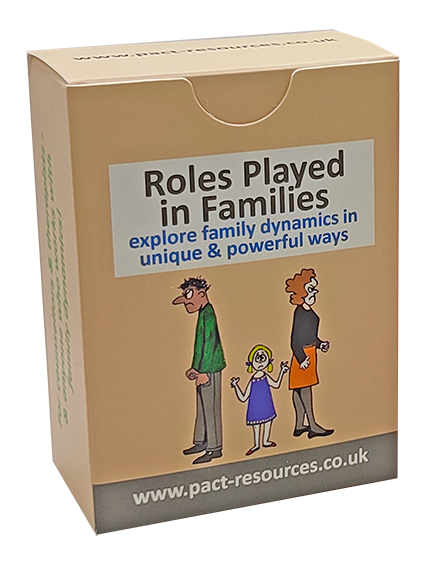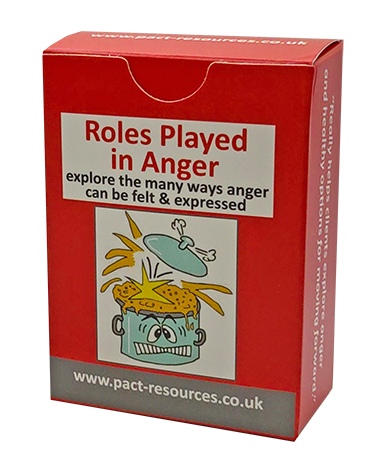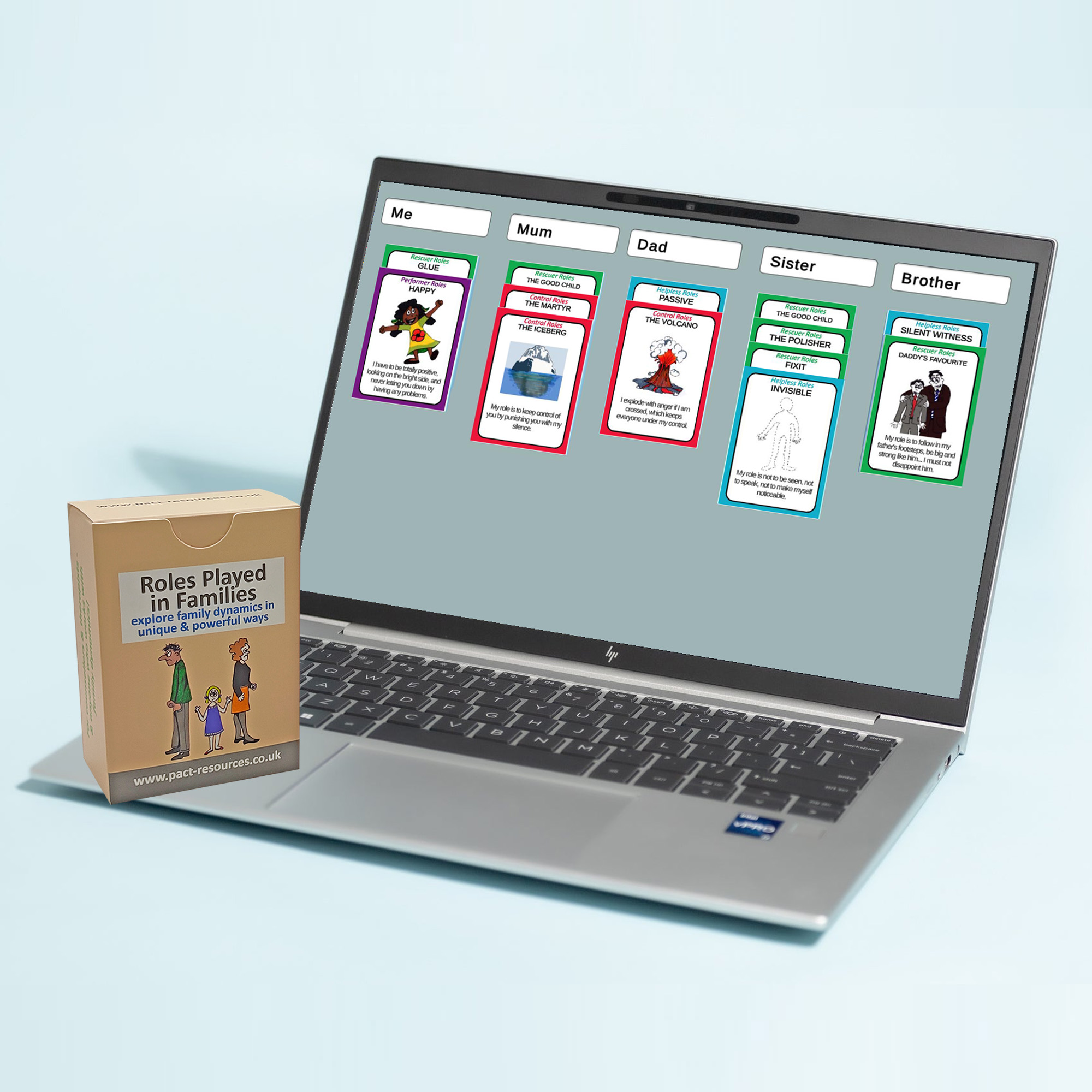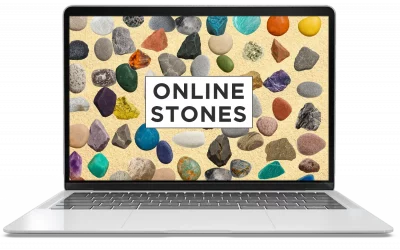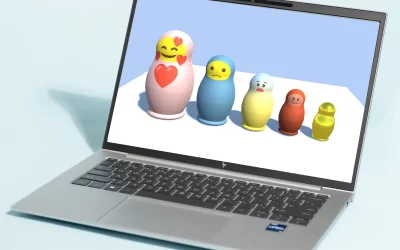Unlocking Conversation: The Benefits of Using Therapy Cards in Counselling Sessions
In a counselling setting, creating a safe, open space for conversation is essential—but it’s not always easy. Clients can struggle to find the right words, feel overwhelmed by emotions, or be unsure of where to begin. That’s where therapy cards can make a meaningful difference.
Therapy cards are a simple yet powerful tool that can help clients express themselves, explore emotions, and deepen their self-awareness. Whether you’re working with children, teens, adults, couples, or groups, therapy cards offer an interactive and engaging way to support the therapeutic process.
Here are some of the key benefits of using therapy cards in counselling sessions:
1. Break the Ice and Build Rapport
Especially in early sessions, therapy cards can help reduce tension and create a more relaxed atmosphere. Drawing a card with a prompt or question gives the client something to focus on other than themselves, making the process feel less intimidating. It’s a gentle, non-invasive way to ease into deeper conversations.
2. Encourage Expression and Reflection
Many clients find it hard to articulate how they’re feeling or what they’re thinking. Therapy cards provide structure and language that can spark insight and expression. Prompts might ask clients to explore:
-
Emotions they’re experiencing
-
Events that have impacted them
-
Personal strengths and coping strategies
-
Goals, fears, or wishes
This structured approach can help clients reflect on their inner world and feel more confident expressing themselves.
3. Support Different Learning and Communication Styles
Not every client is a talker. Some may prefer visual cues or concrete prompts. Therapy cards can be particularly useful for clients with neurodivergent traits, communication challenges, or trauma histories. They provide an alternative to traditional verbal dialogue, which can be especially helpful for younger clients or those who struggle to open up.
Click here to learn more about Pauline Andrew’s fabulous range of therapy cards.
4. Promote Engagement and Focus
Therapy cards add a tactile and interactive element to sessions, helping keep clients engaged and present. The act of choosing a card creates a sense of agency and curiosity, which can be motivating. It also encourages a more collaborative feel to the session, helping clients feel like active participants in their own healing.
5. Facilitate Themed Exploration
Cards can be tailored to specific themes such as:
-
Self-esteem
-
Anxiety and coping
-
Relationships
-
Grief and loss
-
Goal setting
Using cards focused on a particular area can guide sessions in a purposeful way, allowing for targeted exploration without the conversation feeling forced or overwhelming.
6. Create Opportunities for Insight and Connection
Sometimes the “random” card a client draws leads to exactly the conversation that needs to happen. These moments can offer powerful insight or shift the course of therapy. For group or family sessions, therapy cards can also foster connection and empathy, helping participants understand each other’s perspectives more deeply.
7. Adaptable Across Ages and Settings
Therapy cards are incredibly versatile. They can be used with children in play therapy, teens in school settings, adults in individual sessions, or even couples and families. Whether you’re working face-to-face or online, therapy cards translate well to various formats and can be adapted to meet the unique needs of your clients.
8. Use Therapy Cards with your Online Clients
Pauline Andrew’s fantastic and powerful range of therapy cards are now available online! Visit PACT Resources Online to view subscription options and start using Pauline’s fantastic cards online by sharing your screen within the cousnelling or therapy session. Pauline’s range of therapy cards includes:
-
- Roles Played in Families
- Roles Played in Anger
- Core Needs in Families
- Roles Played in Groups
Watch the video below to get some ideas of how the cards can be used within online counselling sessions.
Final Thoughts
Therapy cards may seem simple, but they can open doors to meaningful conversations and transformative moments in counselling. By creating structure, sparking curiosity, and encouraging authentic expression, they help clients feel seen, heard, and empowered in their therapeutic journey.
If you’re looking to bring more creativity, clarity, and connection to your sessions, therapy cards are a resource well worth exploring.
Bringing the Power of Stones into Online Therapy: Online Stone App
Our Digital Stone App bridges the gap between the tactile world of face-to-face counselling and the practicalities of online therapy.
Bringing the Layers to Life Online: How Nesting Dolls Can Transform Online Counselling
Our Nesting Doll web app is a highly creative resource designed to help you explore inner layers during your online sessions.
Exploring the Past, Present, and Future with Erikson’s Life Stages: A Powerful Tool for Self-Understanding
As a psychoeducational tool, Erikson’s Life Stages can support clients in reflecting on the challenges they’ve faced, the strengths they’ve developed, and the unresolved experiences that may still impact their emotional wellbeing.
How the Wheel of Life Can Transform Self-Awareness in Counselling
Whether you’re working with individuals who feel “stuck,” overwhelmed, or unclear about their direction, the Wheel of Life can open the door to meaningful insights and conversations.
Why Counsellors Should Embrace Online Counselling
Whether you’re new to online counselling or looking to strengthen your virtual practice, here are some key benefits of using online counselling resources.

